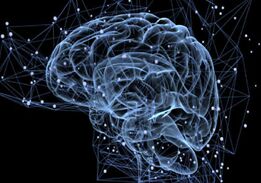人类大脑记忆中心在13岁时就停止生长
|
New neurons stop growing in a key region of the brain's 'memory center' as early as 13 years old, according to a controversial new study. Scientists looking at brain tissue samples found no evidence of new nerve cell growth in the dentate gyryus, a part of the hippocampus vital to memory formation, after the age of 13. The discovery contradicts previous findings suggesting that hippocampal neurons replenish themselves throughout adulthood, as they do in many other mammals.
New hippocampus neuron development also dwindled over time in macaque monkeys, the scientists found. And hippocampus regeneration was thought to be lacking in big-brained dolphins, porpoises and whales. Writing in the journal Nature, the authors led by Dr Arturo Alvarez-Buylia, from the University of California at San Francisco, concluded: 'Neurogenesis in the dentate gyrus does not continue, or is extremely rare, in adult humans.' 'The early decline in hippocampal neurogenesis raises questions about how the function of the dentate gyrus differs between humans and other species in which adult hippocampal neurogenesis is preserved.' In an accompanying News And Views commentary, Dr Jason Snyder from the University of British Columbia, Canada, wrote: 'These findings are in stark contrast to the prevailing view that human hippocampal neurogenesis extends throughout adult life.' |









